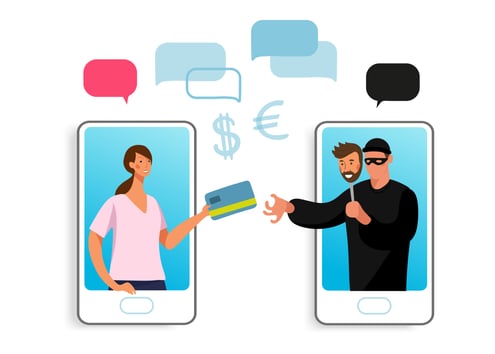18-34-year-olds are almost twice as likely to be a victim of an impersonation scam than those over 55*.
What is an impersonation scam?
An impersonation scam is when a criminal contacts you pretending to be a person or organisation you trust such as a bank, the police, or a well-known company, for example, Amazon. These scams can be very sophisticated and often start with attempts to get you to reveal personal and financial information. The fraudsters then use this information to impersonate someone you trust, making it seem more believable.
The ongoing cost of living crisis is also providing fraudsters with opportunities to take advantage of people. Scams involving fake cost of living payments, energy refunds and fake competitions to win prizes such as food hampers have been reported.
How do fraudsters contact you?
Fraudsters are contacting people in several ways such as over the phone, email, text, WhatsApp and other messaging services.
A scam which is becoming increasingly popular is when a fraudster sends a WhatsApp message that looks like it comes from a friend or family member requesting money for reasons such as being stranded overseas or urgently needing money to pay a debt or bill.
What to do if you are unsure who is contacting you is who they say they are.
If you think you have received a suspicious email forward it to report@phishing.gov.uk
If you receive a link to a scam website, you can report it here.
If you would like to check if a website is safe you can check it here.
Fraudsters will try to rush you into deciding, always take some time to stop and think and ask yourself if what you are being asked to do could be part of a scam.
Remember
Criminals will try to rush you, but your bank or the police won’t.
The police and banks won't call you and ask for your account details.
You can read more about the different types of fraud on our dedicated page.
So remember, if you have the slightest doubt always “Take 5” and think about the message you have received!
*According to research by Visa and Aston Institution for Forensic Linguistics
